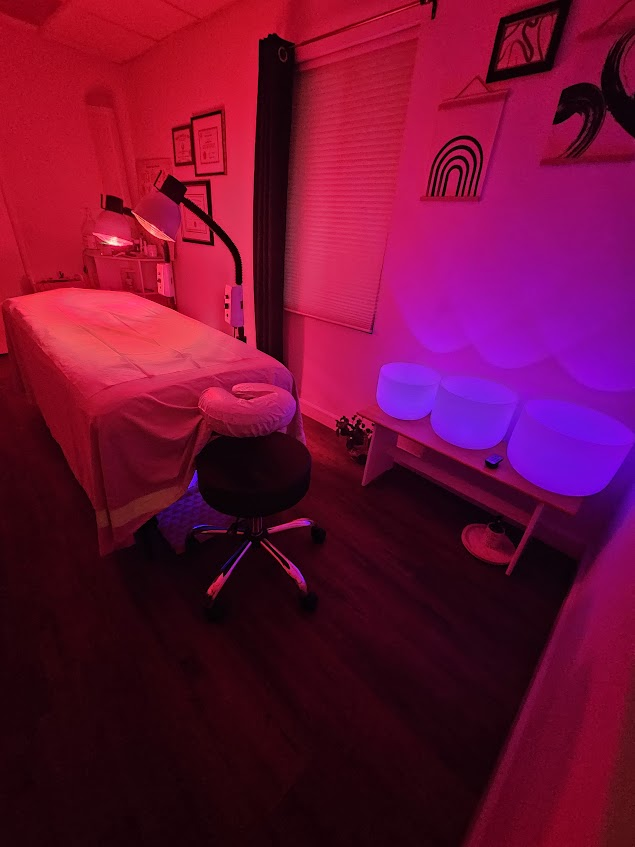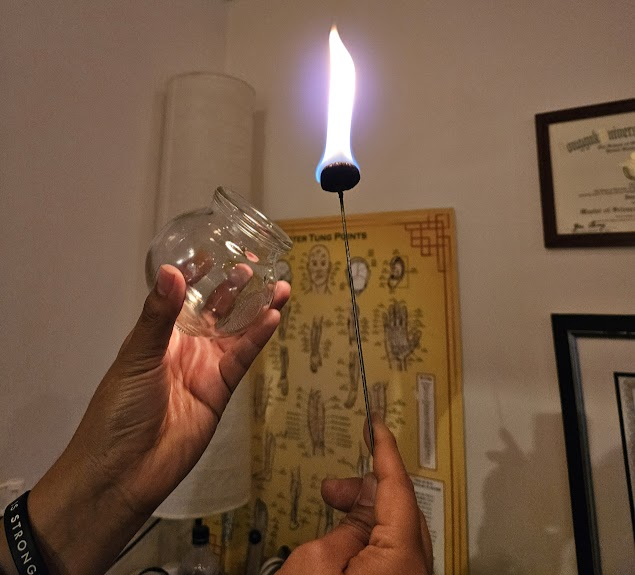
Everything You Need to Know About Acupuncture
-
Acupuncture involves stimulating specific points on the body, called acupuncture points, by inserting thin needles, which may be gently manipulated by hand or with electrical stimulation. This process promotes the body’s natural self-healing.
Mechanism: In Traditional Chinese Medicine (TCM), acupuncture is used to balance the body's energy flow. In Western medicine, it's believed to stimulate nerves, muscles, and connective tissue, which may help boost the body’s natural painkillers.
-
We believe everyone deserves access to quality care. Our sliding scale pricing allows you to choose a fee within a set range that feels supportive for you, helping make consistent, personalized treatment more accessible without changing the quality of care you receive.
-
Acupuncturists describe the needles as hair-thin, stainless steel, and disposable. While you may feel some sensation as the needles are inserted, it’s not described as painful.
-
Yes. Acupuncture is a safe and supportive therapy that can complement other pain management treatments. If you’ve had recent injuries or head trauma, your acupuncturist will review your health status carefully to ensure it’s safe and appropriate for you.
-
Yes, When performed by a licensed and certified acupuncturist using sterile, disposable needles. In California, acupuncturists must hold a Master’s degree from an accredited school and maintain state licensure. California also recognizes Licensed Acupuncturists (L.Ac.) as Primary Health Care Providers. The California Acupuncture Board regulates standards and exists to protect public safety.
-
While best known for pain relief, acupuncture is used to treat a wide range of conditions, including:
Respiratory: Allergies, asthma, bronchitis, sinusitis, COPD
Eye: Dry eyes, macular degeneration, eye strain
Orthopedic: Sciatica, arthritis, frozen shoulder, back pain
Digestive: IBS, acid reflux, constipation, nausea
Neurologic: Migraines, neuropathy, stroke recovery
Mental Health & Wellness: Anxiety, depression, stress, insomnia
Skin & Reproductive Health: Eczema, acne, fertility, menstrual irregularities
Acupuncture provides a holistic approach to healing by supporting overall balance and wellness.
-
Yes. Acupuncture may positively affect mental health conditions like anxiety, depression, and PTSD. It can increase the body’s production of endorphins, natural chemicals that relieve pain and elevate mood.
-
Wear loose, comfortable clothing that allows easy access to your arms, legs, and back. Sessions are more effective and relaxing when you’re comfortable. In some cases, you may need to remove clothing depending on where the needles are placed, but your privacy and comfort are always respected.
-
Yes. Eating a light meal or snack before your appointment supports your energy (Qi) and helps you feel more balanced during the session. Avoid arriving on an empty stomach, and be sure to stay hydrated for the best experience.
-
Frequency depends on your condition and overall health. Some people benefit from weekly sessions, while others come biweekly or monthly. Regular, consistent sessions often lead to longer-lasting results. Your acupuncturist will create a schedule tailored to your needs and goals.
-
Yes, acupuncture can support your body’s natural healing response and help strengthen the immune system. Whether you’re experiencing a cold, allergies, or another illness, treatment may help ease symptoms and encourage faster recovery. Wearing a face mask is a simple, supportive way to care for other patients and help keep our space comfortable and welcoming for everyone.
-
That’s okay! Many first-timers feel the same way. Here are four helpful tips:
1. Learn a little about acupuncture.
Understanding the process helps ease fear. The needles are hair-thin and nothing like those used for shots.2. Talk to your acupuncturist.
We’re here to help and will guide you through the process gently and at your pace.3. Breathe.
Take deep breaths to help your body relax. Many people even fall asleep during treatment.4. Remember, you’re in control.
You can ask for adjustments anytime. Our rooms are designed for comfort, with adjustable heat lamps, warm beds, and calming music. This is your space to feel safe and relaxed.
Real Testimonials, Real Results
-
"I’ve been Jacy’s client for over three years now and she’s absolutely fantastic. She’s truly vested in your complete overall well-being and on top of that she’s so nice. She’s extremely knowledgeable and listens to your concerns and determines the best treatment from there. I’m so happy to have her in my life!"
-Valued Patient ★★★★★

-
"Jacy is a true healer. She has helped me over the last four years in ways that are difficult to fully articulate here but I can honestly say that I wouldn’t have accessed both the mindset and the vitality that I have today without her. Im so beyond lucky to have found Jacy. Her healing modality is so grounded, patient, supportive and nourishing…she is able to attune to anyone and make them feel entirely at home in her practice. I honestly couldn’t recommend anyone more"
-Valued Patient ★★★★★

-
"I've been a long-time client of Jacy for the past five years, and I cannot express enough gratitude for her as a person. I am also incredibly thankful for the wonderful customer service she provides to her patients. She has a true passion for helping others with their personal journey toward good health. I am so grateful to have her as my acupuncturist and will continue to utilize her services for many more years to come."
-Valued Patient ★★★★★

